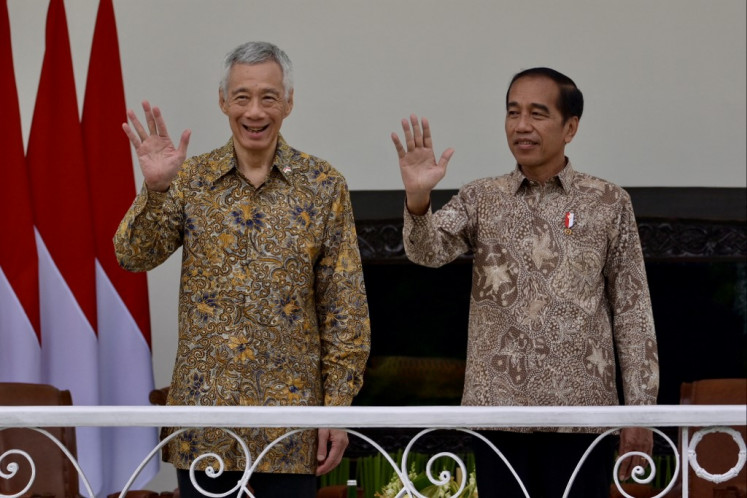Where have all the good teachers gone?
Good teachers that encourage children to fully absorb knowledge are few and far between
Change Size

G
span class="inline inline-left">Good teachers that encourage children to fully absorb knowledge are few and far between.
There are many things wrong with the country’s education system, which explains why Indonesian students score lower than those in China and Thailand in science, reading and math tests, according to the OECD’s Program for International Student Assessment (PISA) in 2010.
To say the country does not spend enough on education is an understatement, since less than one-quarter of the annual state budget goes to education under the supervision of the Education and Culture Ministry.
Even then, money is not everything. The PISA study also recorded that Indonesian students performed better than Qatari’s, who live in the world’s richest country by GDP per capita.
The latest ministry effort to improve education is redefining natural and social sciences (locally known as IPA and IPS, respectively) in the elementary education curriculum commencing this year. This is over concerns that children have been overburdened by long school hours, which, ironically, is due to another ministerial policy to extend learning time.
After many controversial reforms from the ministry regarding students failing the national exams and the extended school hours, the latest curriculum initiative raised many eyebrows.
“The biggest problem in Indonesian education is the teaching method. It’s not about constantly changing the curriculum, but how most of our teachers have poor ability in transferring knowledge to students,” Shafiq Pontoh, chief of community-based Gerakan Indonesian Berkibar (Indonesian Education Movement, GIB).
He said he believed the main things in basic education were teaching students how to read, write and comprehend mathematics as well as natural and social sciences.
“As soon as they can read, they will learn more things. When they learn how to write, it also means that they learn how to think in structure. Meanwhile, math and the sciences will increase their logical skills and ability to ask questions.”
GIB cited a 2010 ministry report that found 54 percent of the country’s teachers needed their skills improved and 13.19 percent of schools were in poor shape.
Data released in 2007 by the World Bank stated there was an uneven distribution of teachers in the country. Twenty-one percent of the schools in urban areas were in need of more teachers, while the rate stood at 37 percent in remote areas and 55 percent in rural areas. In general, 34 percent of the total schools in the country experienced a shortage of educators, while there were quite a few areas with an excess number of teachers.
Sharing a similar thought, education expert Bambang Irianto said the country had yet to reach the ideal stage in providing good education.
“An ideal education is a situation where a student is not just mastering science. It’s about building a good character for students by giving them skills with which to face life,” he said.
Bambang named communication as an important ability in facing the present and the future. Despite it being vital, he did not recommend the ministry create a dedicated communication subject because the Indonesian language played a role in that.
“One effective teaching method in learning good communication is establishing a group discussion session. The students learn how to express their opinion and how to listen to others,” he said.
Most teachers maintain the old-fashioned one-way-approach by just lecturing in front of a classroom and requiring the students to take notes before conducting regular quizzes.
“As a result, it is common to see people being stubborn in discussion forums, forcing others to follow their path and ignoring others’ point of view because they are accustomed to such an attitude.”









